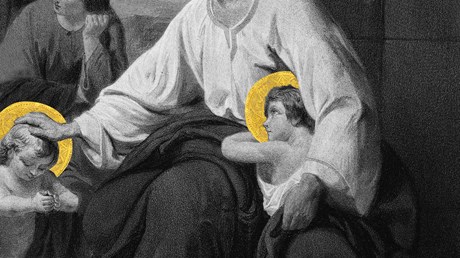The Book of John reminds us that Jesus’ humanity makes ours possible.

Nearly halfway through John’s Gospel, Jesus tells those gathered in the temple at the Feast of the Dedication, “Is it not written in your Law, ‘I have said you are “gods”’?” (10:34). In effect, Jesus says that Scripture says that God says, “You are gods.” What is Jesus on about?
It really is quite surprising. After all, we read the Scriptures and learn that human beings are not gods—at least, not in the sense that God is God. When the mighty Nebuchadnezzar failed to recognize the difference between human beings and God, he ate grass alongside the oxen until he learned as much (Dan. 4:1–37).
Yet, strange as it seems, Jesus saying “you are gods” tells us something essential about what it means for us—and for Jesus—to be human.
Now recall that, shortly before this statement in John 10, Jesus had said, “I and the Father are one,” and that those who heard him recognized the statement as an offense to God punishable by stoning (vv. 30–31; Lev. 24:10–16).
Their concern was not unfounded. Jesus said this at the Feast of the Dedication, when Jews remembered how God delivered them from Antiochus IV, whose chosen name Epiphanes (meaning either “illustrious” or “manifest”) suggested he thought of himself higher than he should have. So, stones in hand, those gathered around Jesus charged him: “You, a mere man, claim to be God” (v. 33).
Their accusation of blasphemy includes the critical idea that a human being cannot be God. And it is this idea that makes Jesus bring up the time that God called human beings gods:
Is it not written in your law, “I said you are gods?” …
